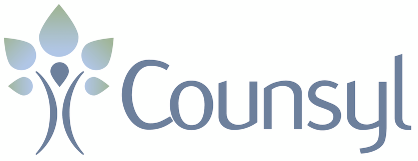 Whether relying on Carl von Clausewitz or Jack Dempsey for the sentiment, Counsyl, Inc., a genetic diagnostic testing company has decided that the best defense against Myriad Genetics is a good offense and, accordingly, has filed a declaratory judgment action in the Northern District of California (the venue having the added advantage of not being in Myriad's backyard in Utah). Represented by legal academic Mark Lemley, Counsyl asks the District Court to find that Myriad "has no rights" against Counsyl with respect to Myriad's patents, U.S. Patent Nos. 5,709,999; 5,747,282; 5,753,441; 6,951,721; 7,250,497; 5,837,492; 6,033,857; and 6,051,379 (these are some, but not all of the patents asserted against Ambry Genetics and Gene-by-Gene).
Whether relying on Carl von Clausewitz or Jack Dempsey for the sentiment, Counsyl, Inc., a genetic diagnostic testing company has decided that the best defense against Myriad Genetics is a good offense and, accordingly, has filed a declaratory judgment action in the Northern District of California (the venue having the added advantage of not being in Myriad's backyard in Utah). Represented by legal academic Mark Lemley, Counsyl asks the District Court to find that Myriad "has no rights" against Counsyl with respect to Myriad's patents, U.S. Patent Nos. 5,709,999; 5,747,282; 5,753,441; 6,951,721; 7,250,497; 5,837,492; 6,033,857; and 6,051,379 (these are some, but not all of the patents asserted against Ambry Genetics and Gene-by-Gene).
Specifically, the complaint alleges that it has "developed and is prepared to launch" genetic diagnostic tests to detect mutations in the human BRCA1 and BRCA2 genes to predict a likelihood for a woman to develop breast or ovarian cancer. According to Counsyl, "[p]rior to the priority dates" of the patents recited in the complaint it was known that mutations in the BRCA1 and BRCA2 genes was linked to an increased risk of breast and ovarian cancer, echoing allegations made by Ambry Genetics and Gene-by-Gene in their opposition to Myriad's preliminary injunction motion in the Utah cases. Counsyl also alleges that Myriad contends that "one or more claims" of the recited patents encompass fragments of the human BRCA1 and BRCA2 genes and methods for detecting disease-related mutations of these genes, and methods for using the detection of these mutations to predict risk breast and ovarian cancer. The compliant mentions Myriad's development of its proprietary (and undisclosed) database of disease-related mutations in the BRCA1 and BRCA2 genes and the purported harm the failure to disclose has had on public health (specifically that it has "effectively hindered the medical community from being able to use patient data to further medical research and impeded the ability of clinicians to interpret genomic data").
The complaint also reminds the District Court that "certain claims" in some of the recited patents were subject to prior litigation, and that some of those claims had been deemed by the Supreme Court to recite patent-ineligible subject matter. Incredulously, Counsyl asserts that Myriad nonetheless has asserted other claims, not previously considered by any court against other defendants providing genetic diagnostic testing of human BRCA1 and BRCA2 genes. "Numerous clinicians and entities performing research" on human BRCA1 and BRCA2 genes are alleged to have received cease-and-desist letters from Myriad (neither copies of these letters not the timeframe is disclosed) and, of course, Myriad has sued two other genetic diagnostic testing providers, Ambry Genetics and Gene-by-Gene, for offering BRCA1 and BRCA2 genetic tests. This behavior, Counsyl alleges, puts it at risk for a patent infringement lawsuit from Myriad since it is in the same position as these other testing laboratories. The complaint then sets forth with specificity the claims of the recited patents that Counsyl contends it is at risk for Myriad to assert against them.
The complaint separates into Counts II through xxx each of the recited patents, alleging invalidity for the '999 patent, the '282 patent, the '441 patent, the '721 patent, the '497 patent, the '492 patent, the '857 patent, and the '397 patent, and non-infringement for the '282 patent, the '441 patent, the '721 patent, the '497 patent, the '492 patent, the '857 patent, and the '397 patent. These counts are nothing more than the bare recitation of the patent numbers and the claims for each Count, and that Counsyl either does not infringe these claims or they are invalid for failing to meet at least one of the statutory requirements for patentability.
Counsyl's prayer for relief includes a declaration of invalidity or non-infringement for the recited claims of each of the recited patents, and that (for no apparent reason) the case be declared exceptional and Counsyl be awarded attorneys fees under 35 U.S.C. § 285.